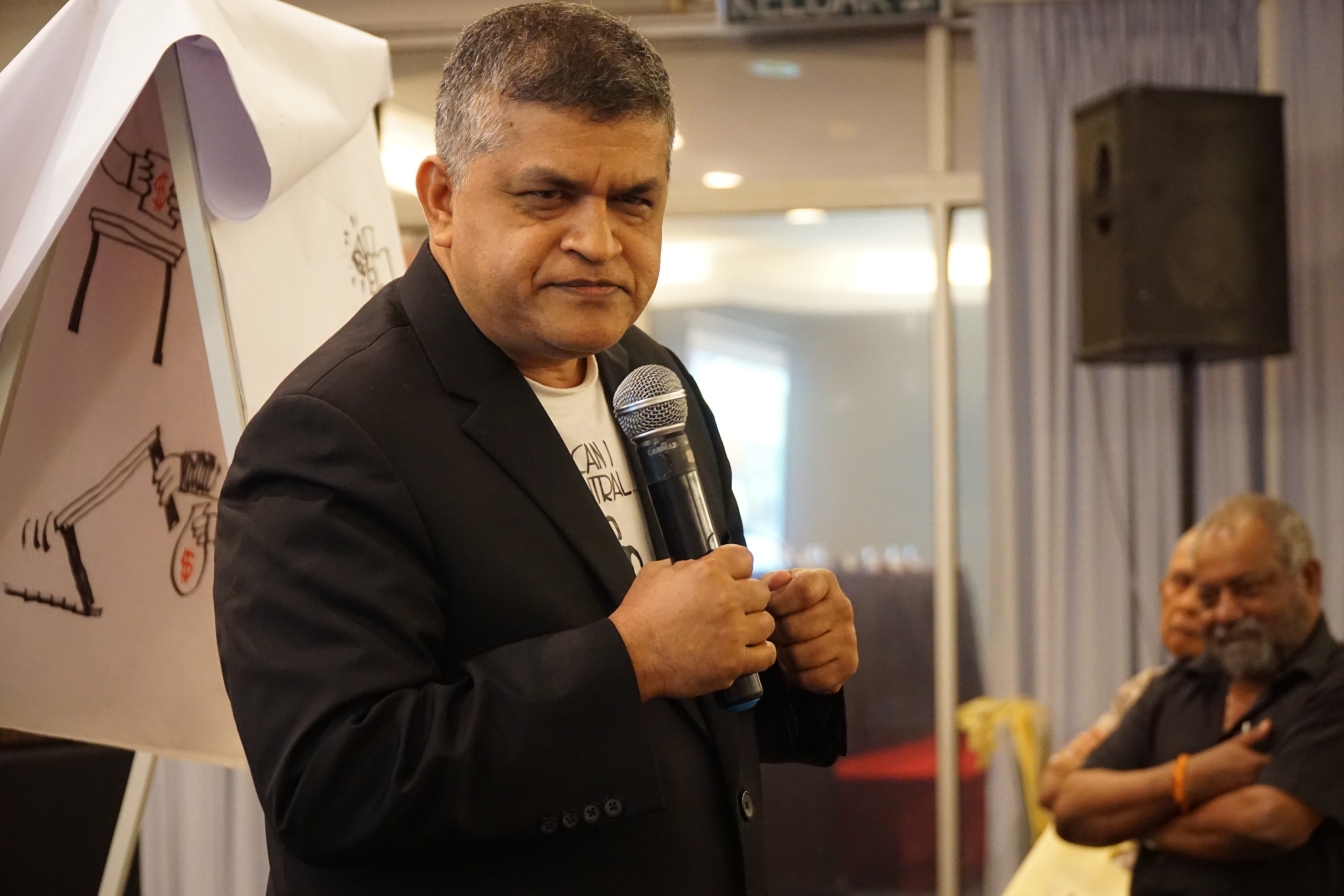Sign up for The Media Today, CJR’s daily newsletter.
Before 2018, journalism in Malaysia was a risky profession. There were direct controls on mainstream outlets across print and television. The party of the Prime Minister, Najib Razak, the United Malays National Organisation (UMNO), partially owned Utusan Malaysia, the largest Malay-language newspaper, which it used as a political tool. Journalists, bloggers and even one cartoonist who satirized Najib were arrested.
In 2015, after the Wall Street Journal broke a story that alleged $700 million from a state fund had gone into Najib’s personal bank account, Malaysia clamped down on the media’s ability to report it.
It also went after the few outlets—such as MalaysiaKini and the Malaysia Insider—that had defied the crackdown. “There were people who went to jail for reporting on [the state fund], [outlets] who lost their licenses for it and journalists being sued,” Shannon Teoh, president of the Malaysian Foreign Correspondents Club, says.
ICYMI: Malaysia’s R.AGE builds a business from advocacy journalism
But last year an election abruptly shifted the atmosphere, and brought unexpected freedoms, especially for the media. The incumbent Barisan Nasional coalition, led by UMNO, had been in power since Malaysia gained independence from the United Kingdom in 1957, making it the longest ruling elected party in the world. On May 9, 2018, the opposition coalition swept to victory in what many called the Tsunami Rakyat (People’s Tsunami).
The country has since seen a blossoming of press freedom—an exception in a region where greater censorship and state control is becoming the norm. The charges against the cartoonist, Zulkiflee Anwar Ulhaque, known as Zunar, were dropped. And parliament repealed a broadly criticized law imposing criminal penalties for “fake news.”
Mainstream media outlets which previously only covered positive stories about the ruling party are now free to cover increasingly controversial topics, and give space to the opposition. In July of 2018, MalaysiaKini, in a collaboration with the Nepal Centre for Investigative Journalism, published an investigation examining the ways Nepali migrant workers came to Malaysia.
“Our investigation revealed a corrupt collaboration between the migration agencies of the governments of Nepal and Malaysia, with private companies, to fleece Nepali workers,” says Ramu Sapkota, the investigative journalist with the Center for Investigative Journalism Nepal who had reported the story with Alyaa Alhadjri, a journalist at MalaysiaKini.
The story alleged that $434 million was illegally collected from migrant workers through illegal fees and extra charges. It implicated former Deputy Prime Minister and Home Affairs Minister Ahmad Zahid Hamidi, whose family was directly connected to a company contracted by the government, and which had been illegally collecting fees from Nepali workers.
This time, the Malaysian government began an investigation into the allegations. Other outlets picked up the story. And in October 2018, Ahmad was charged with corruption by the Malaysia Anti-Corruption Commission—the same entity that barely investigated Najib. “If you break the right story at the right time and with the right partners, it can have a great impact,” Sapkota says.
So far the changes in the environment are not so much legal as political; the laws that were used to suppress and censor in the past are still there. Talks between civil society groups, journalists, and the government have begun on creating an independent Media Council that, if set up properly, would codify and protect press freedom no matter who is in power.
Last month UNMO sold shares in the newspaper Utusan Malaysia. It no longer formally has a controlling stake. The retreat of political patronage, while welcome, means that the paper and others like it must now compete, like the rest of global journalism, for funding and attention.
In Malaysia, it’s a welcome problem. “If you take a big picture view, things have become better,” Teoh says. “You’re allowed to have a freer hand in criticizing politicians without any vague laws and regulations being used against you.”
ICYMI: Student uncovers decades of sexual misconduct allegations against professor
Has America ever needed a media defender more than now? Help us by joining CJR today.



